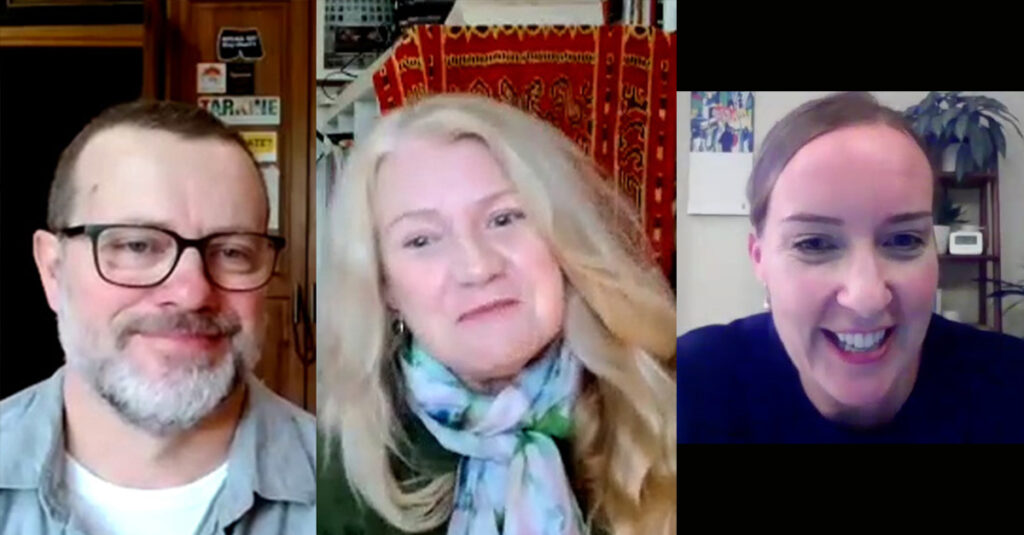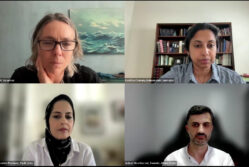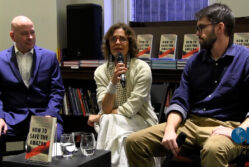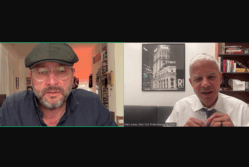Archive Event Highlight

Former Correspondent Discusses Memoir and Battle with PTSD
by Chad Bouchard
After years of reporting on some of the world’s worst violence and disasters, it took former Reuters journalist Dean Yates a long time to fully realize the toll these experiences had taken on his mental health.
“I was unwell for many years. I had a lot of the classic symptoms of PTSD. The emotional numbness, the flashbacks. I was suffering, my family was suffering, but I was in denial about that,” he said.
On Nov. 14, Yates and his wife Mary Binks, speaking together publicly for the first time for the OPC, discussed their experience grappling with his post-traumatic stress disorder and his 7-year recovery process, which Yates recounts in his memoir, Line in the Sand. Clothilde Redfern, director of the Rory Peck Trust, moderated the discussion.
Like many correspondents, Yates covered traumatic events in his work, including terrorist bombing in Bali in 2002 and the Indian Ocean tsunami in 2004. While serving as Reuters bureau chief in Baghdad, two of his colleagues were shot and killed from an American helicopter.
Yates remained in denial about the effects of these events, in part because he was still able to do his job, compartmentalizing his work and personal life.
Binks noticed signs of his mental and emotional strain long before Yates came to accept he needed help. She said he coped with the trauma by becoming numb, isolating himself from the family and hiding “cracks in the façade.”
“Privately, I was at my wit’s end because this person wasn’t my husband,” she said. Binks had been working with refugees and asylum seekers at the time, which helped her to recognize patterns.
“There was some sort of correlation between what was happening in my home and what had happened to these people – the trauma, the nightmares, the avoidance. I think at the time it really gave insight.”
Binks eventually persuaded Yates to seek help. First, he took a leave of absence from work, but without any psychological help, “and without any employer support.” Yates felt the company he worked for “left me for dead, basically treated as damaged goods.” He urged media organizations to pay more attention to the mental health of journalists and provide better care. The lack of support contributed to his feelings of worthlessness, “which played into my suicidality,” Yates said.
Redfern noted that many journalists she talks with through the Rory Peck Trust see their work as their primary purpose, and when they have to stop due to threats or mental health, they lose their driving force.
“I knew my identity was at stake, Clothilde. I knew deep down that I could not do this journalism anymore. I knew when I went on sick leave that I would never be a Reuters journalist anymore,” he said, visibly showing a moment of grief about leaving the role behind.
However, Yates stressed that journalists shouldn’t feel they have to give up their profession due to PTSD or other forms of trauma, saying journalists can continue to work in the industry by changing their role or their job, “and if you get on top of your trauma early enough, you can still do the journalism you had been doing for years. Don’t leave it like I did and deal with it too late.”
Click the window below to watch a playlist of video clips from the program.




